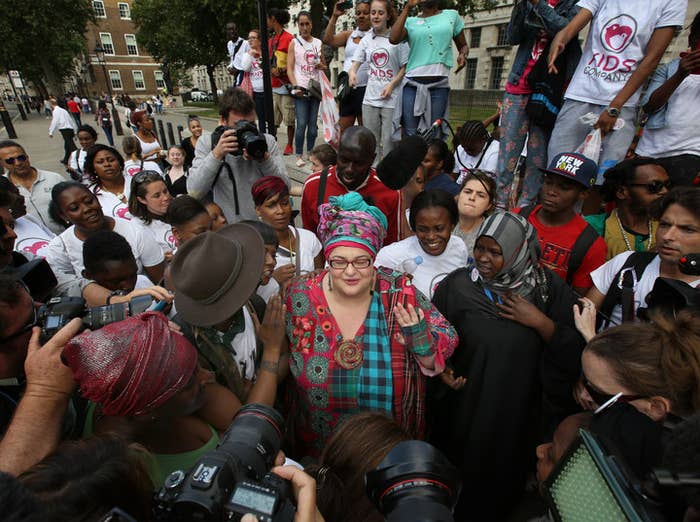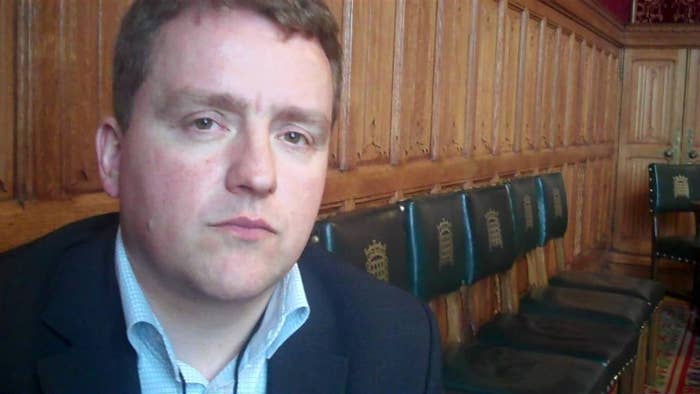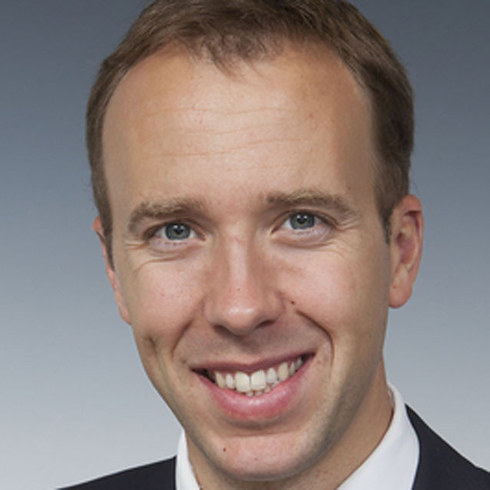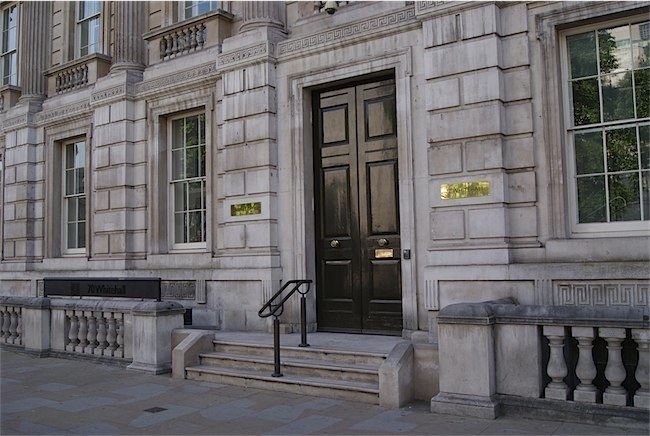
Britain’s voluntary organisations have accused the government of using the collapse of Kids Company to “punish” charities as ministers seek to introduce a controversial gagging clause to their funding.
The clause, which was announced last month, aims to prohibit organisations that receive grant funding from using this money to lobby government or parliament. It has received a furious response from the voluntary sector, with dozens of charities signing an open letter condemning it. The Heritage Alliance, an umbrella body for heritage organisations in England, has also written an open letter to the Cabinet Office to express its concerns.
Karl Wilding, director of public policy at the National Council for Voluntary Organisations (NCVO), told BuzzFeed News Kids Company was an extreme case that does not reflect the broader NGO sector.
“Charities are being punished because of the failings of Kids Company, which received grants from government that most charities couldn’t dream of,” he said.
“This clause is tough-sounding action in response to a problem that doesn’t exist. In fact, taxpayers will be worse off if charities feel less able to tell government or MPs what works and what doesn’t.”
Kids Company received £42 million in central government grants during its existence. Days before its closure, Cabinet Office ministers Oliver Letwin and Matt Hancock – the latter the minister with responsibility for the anti-advocacy clause – overruled officials’ concerns and signed off a contentious £3 million grant the department has yet to claw back.

Wilding said he was “especially angry with the way they’re playing fast and loose with public perception of what it is that’s being paid for here”.
He said: “The way ministers talk and the spin is that tax money is paying for campaigners," but noted that the wording of the clause itself talks about banning charities from "influencing" the government. This, Wilding feels, is "such a broadly drawn definition it captures all sorts of policy-type work which is part of the normal relationship with government”.
Wilding said he was also dismayed when Hancock, the Cabinet Office minister responsible for implementing the plan, was asked in parliament which charities had used government grants to pay for campaigns in the last two years and was unable to provide an answer.
Wilding said the clause was proposed by a right-wing think tank, the Institute of Economic Affairs (IEA), which, Wilding said, “has its fingerprints all over the idea”.
On Sunday The Observer reported that not only did the IEA come up with the gagging clause proposal, but it was helped to do so by a trustee of the charity regulator, the Charity Commission. However, Christopher Snowdon, the IEA’s head of lifestyle economics, described the claims as “a non-story” in a blog on his website, while the Charity Commission said it was not consulted on the clause.
Snowdon previously said it was “pleasing to see the government acting on one of our recommendations” and described the clause as “a basic requirement that taxpayers’ money be spent on the public services taxpayers need, rather than on the public policies charity bosses want”.
However, Wilding said ministers were “simply implementing an ideological attack from a think tank that won’t itself reveal who is funding it”. The IEA, despite not giving information about individual funders, is known to have received funding from the tobacco industry, and charity insiders feel that in part the proposal has been influenced by the war of words between that industry and campaigning anti-smoking charities like ASH.

Wilding said the policy would “reduce value for taxpayers” because there “are some areas that you’ll never get the public to donate to in huge amounts”, such as, for example, “rape crisis centres and women’s refuges”. On issues such as domestic violence, he said, it is “sensible” for specialists who get knowledge by offering services paid for by grants” to “use that expertise … to inform what government does”.
He said: “If you look at the government’s programme over the last five years you’ll see lots of statements about open government and how civil servants don’t know best ... Government is on the one hand talking about how it wants involvement, but it only appears to want it from some organisations but not others.”
He said there were other institutions that were “able to benefit from the Treasury in terms of tax relief from various things, and they’re inputting into policy.”
The Department for Communities and Local Government has had a similar clause in place for 12 months, and it has been cited by Snowdon as evidence that charities will not be gagged. Whitehall officials close to the policy are also understood to be keen to sell it as a successful “pilot” for the clause.
However, WIlding told BuzzFeed News this was “nonsense”, because there had been “no attempt to evaluate” its impact, while his organisation says it has spoken to several organisations who claim it has affected their ability to feed into policy. The NCVO has, however, not been able to put BuzzFeed News in touch with them, saying they are not comfortable with speaking publicly.
Snowdon has also claimed: “Only in the extreme scenario of a charity that is entirely funded by the government would there be any meaningful restriction on political advocacy.”
But Wilding argued that despite the small number of charities in receipt of government grants (many more operate on a contractual basis), it could be the thin end of the wedge for charities and free speech. “Broadly charity trustees are quite risk-averse,” he said. “If you’re faced with a situation where you think if we influence the grant might be clawed back, you start to self-police. I don’t like the phrase, but in a sense the policies have a chilling effect. It’s the atmosphere they’re creating.”

He added: “From what we can see, the public expect charities to campaign. If you look at food banks or domestic violence, charities can solve problems when they arise. They’re the ambulance at the bottom of a cliff but if we’re not trying to be the fence at the top of the cliff, if we don’t try to stop problems before they begin, ultimately we end up costing the exchequer money.”
A Cabinet Office spokesperson told BuzzFeed News: “At present there are insufficient checks and balances to make sure that taxpayers’ funds are not being diverted away from their intended purpose to lobbying.”
They added: “Grant recipients can continue to discuss the findings of publicly funded research with government. This change is about making sure that taxpayers’ money is not diverted from good causes and wasted on political campaigning and political lobbying.
“Critics of the new rules can't say this will have a bad effect and at the same time argue it will have no effect."
